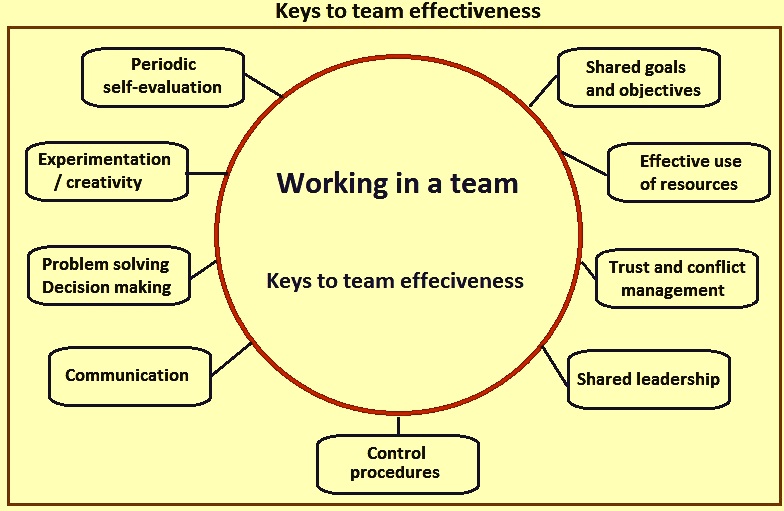Benefits of Organizing Workers into Efficient Teams
In today’s fast-paced and competitive business environment, organizing workers into efficient teams has become an essential strategy for success. By bringing together individuals with complementary skills and expertise, teams can achieve higher productivity, improved problem-solving capabilities, and enhanced employee satisfaction. In this article, we will explore the various benefits of organizing workers into efficient teams and how it can positively impact organizational performance.
Enhanced Collaboration and Communication
One of the key advantages of organizing workers into efficient teams is the promotion of collaboration and communication. When individuals work together towards a common goal, they can share ideas, knowledge, and experiences that lead to innovative solutions. Effective communication within teams ensures that everyone is on the same page, minimizes misunderstandings, and fosters a sense of unity and camaraderie.
Increased Productivity
Efficient teams can significantly boost productivity levels within an organization. By leveraging the diverse skills and strengths of team members, tasks can be divided and conquered in a more streamlined manner. With clear roles and responsibilities, team members can focus on their areas of expertise, leading to faster and more efficient completion of projects. Moreover, the collective effort of a team often surpasses what can be achieved by individuals working in isolation.
Improved Problem-Solving and Decision-Making
Organizing workers into efficient teams also enhances problem-solving and decision-making capabilities. When faced with complex challenges, teams can pool their knowledge and perspectives to develop creative and effective solutions. The diversity of ideas and experiences within a team can lead to a more comprehensive analysis of problems and a wider range of potential solutions. This collaborative problem-solving approach can result in more informed decisions that consider multiple viewpoints.
Enhanced Employee Satisfaction and Motivation
Efficient teams can contribute to higher levels of employee satisfaction and motivation. When individuals work in teams, they often feel a sense of belonging and camaraderie, which fosters a positive work environment. Team members can support and motivate each other, leading to increased job satisfaction and a higher commitment to achieving team goals. Additionally, being part of a successful team can boost individual morale and provide a sense of accomplishment.
Increased Innovation and Creativity
By organizing workers into efficient teams, organizations can tap into the collective creativity and innovation of their employees. When individuals from different backgrounds and disciplines collaborate, they bring unique perspectives and ideas to the table. This diversity of thought can spark innovation and lead to the development of groundbreaking solutions. By encouraging open communication and valuing diverse viewpoints, teams can create an environment that nurtures creativity and fosters a culture of innovation.

Organizing workers into efficient teams offers numerous benefits that can significantly impact an organization’s success. From enhanced collaboration and communication to increased productivity and innovation, teams provide a platform for individuals to leverage their skills and expertise effectively. By recognizing the value of teamwork and investing in creating a supportive team environment, organizations can unlock the full potential of their workforce and outperform competitors in today’s dynamic business landscape.
Frequently Asked Questions
1. Why is organizing workers into efficient teams important?
Organizing workers into efficient teams has several benefits, including:
Enhanced collaboration and communication
Improved productivity and efficiency
Better problem-solving and decision-making
Increased employee satisfaction and morale
2. How does organizing workers into efficient teams enhance collaboration and communication?
Efficient teams allow employees to work together closely, fostering better communication, sharing of ideas, and collective problem-solving. This leads to improved collaboration and a more cohesive work environment.
3. What are the productivity and efficiency advantages of organizing workers into efficient teams?
Efficient teams enable task delegation, specialization, and effective workflow management. This results in increased productivity, as tasks are completed more efficiently, and resources are utilized optimally.
4. How do efficient teams contribute to better problem-solving and decision-making?
When workers are organized into efficient teams, they bring diverse skills, knowledge, and perspectives to the table. This diversity enhances problem-solving abilities and enables teams to make well-informed decisions collectively.
5. Can organizing workers into efficient teams improve employee satisfaction and morale?
Yes, efficient teams promote a sense of belonging and camaraderie among employees. When individuals work together effectively towards common goals, it boosts job satisfaction, enhances morale, and reduces feelings of isolation.
6. What are some additional benefits of organizing workers into efficient teams?
Other benefits include increased employee engagement, better work-life balance, professional development opportunities, and the ability to adapt and respond to changes more effectively.
7. How can organizations promote the formation of efficient teams?
Organizations can promote efficient teams by fostering a culture of collaboration, providing team-building activities, offering training in effective teamwork, and recognizing and rewarding team achievements.
8. Are there any challenges in organizing workers into efficient teams?
Yes, challenges may include overcoming communication barriers, managing conflicts, ensuring equal participation, and aligning individual goals with team objectives. However, these challenges can be addressed through effective leadership and proper team management.
9. What role does leadership play in organizing workers into efficient teams?
Leadership plays a crucial role in organizing workers into efficient teams. A good leader sets clear goals, provides guidance, fosters open communication, encourages collaboration, and ensures that each team member’s skills are utilized effectively.
10. Can organizing workers into efficient teams lead to long-term success for organizations?
Absolutely! Organizing workers into efficient teams is a key factor in achieving long-term success for organizations. It promotes innovation, adaptability, and continuous improvement, which are essential for staying competitive in today’s dynamic business environment.




